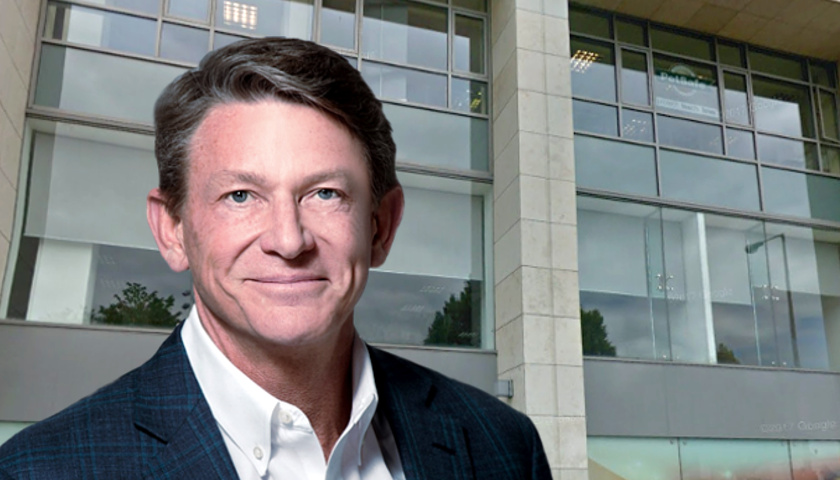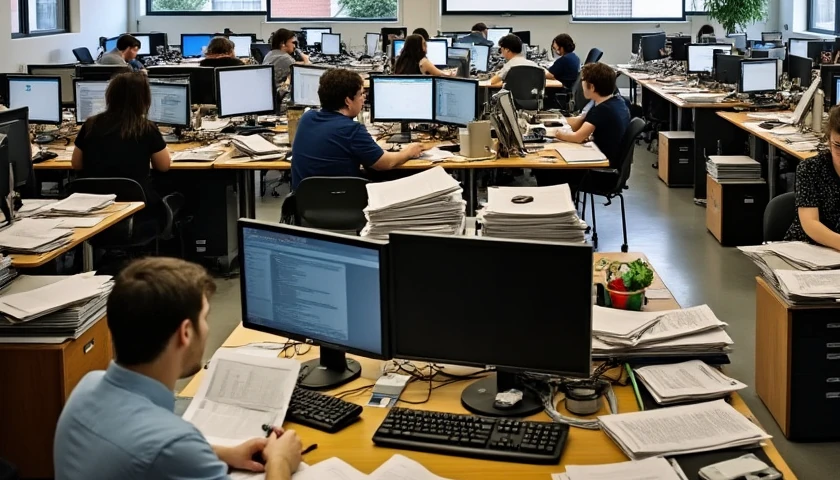The Tennessean reported on Monday that the Irish subsidiary of Radio Systems Corporation, the company founded and majority controlled by Republican gubernatorial candidate Randy Boyd, is a tax haven that enables Boyd’s Knoxville-based company to significantly diminish its U.S. tax obligations.
The report is based on documents The Tennessean says are Irish tax records of Radio Systems Corporation. The Tennessean has failed to publish, produce, or explain the legal provenance of those alleged documents.
“From 2014 to 2016, the company sheltered millions of dollars in European profits from any taxes because of this corporate structure, according to two experts who analyzed Radio System’s Irish tax records obtained by the USA TODAY NETWORK – Tennessee,” The Tennessean reported on Monday.
One of those experts was University of California-Irvine School of Law professor Omri Marian.
“Analyzing the company’s tax records, University of California-Irvine School of Law professor Omri Marian estimated the company paid an effective tax rate of a little more than 1 percent,” The Tennessean reported.
The Tennessee Star contacted Professor Marian, and asked him four questions about his comments. You can read The Star’s questions and Professor Marian’s responses below:
1.Can you confirm that the Irish tax records for Radio Systems Corp you analyzed were provided to you by the USA Today Network-Tennessee?
Response: I can confirm it was provided to me by David Boucher, who introduced himself as a reporter with the Tennessean (a fact I confirmed with a quick online research).
- Are you confident those records are authentic Irish tax records for Radio Systems Corp?
Response: I had no reason to doubt the authenticity of the documents I received from Mr. Boucher.
- Based on your knowledge of Irish law, do you believe USA Today Network-Tennessee obtained those tax records through legal means?
Response: I do not know how Mr. Boucher obtained the documents.
- Can you provide us with a copy of the Irish tax records of Radio Systems Corporation you analyzed?
Response: I suggest you reach out to Mr. Boucher directly for the documents.
“If you have the Irish tax records provided to you by Mr. Boucher, we want to see them to verify the details of the story,” The Star responded to Professor Marian, adding:
There are a number of specifics missing, such as the total amount of revenue earned and actual income taxes paid.
This is journalistically relevant, and it seems to me it is your obligation to provide these documents to us for independent verification, since you have made clear statements about those documents, but are not backing those statements up by presenting those documents.
The Star also contacted Mr. Boucher, author of the article in The Tennessean, and asked him if the Boyd Irish tax records were obtained legally from public records, but did not receive a response.
As best as can be determined by The Star, private tax records of privately held companies, like Radio Systems Corporation, may not be legally obtained in either the United States or Ireland without the consent of the private company.
“Radio Systems manufacturers the majority of its products in China, a common practice for many businesses but also for companies that use the ‘double Irish’ structure,” The Tennessean reported:
The structure involves running profits through two Irish entities, one of which has a business address in the Cayman Islands.
“From the point of view of the U.S., it’s a resident of Ireland for tax purposes, but from the point of view of Ireland, it’s a resident of the Caymans for tax purposes,” Marian said.
“So neither the U.S. nor Ireland declare this company to be a resident.”
Facing considerable push back in light of stories about Apple and Google avoiding billions in taxes, Ireland In 2015 disallowed the use of the “double Irish” structure for new companies. But companies already using the structure could continue to do so until 2020.
A number of American companies–including Apple and Microsoft–have in recent years established Irish subsidiaries that have dramatically cut their corporate tax obligations in the United States.
It is not unreasonable, therefore, to assume that any American company that establishes an Irish subsidiary is doing so, at least in part, to avoid taxes on their operations in other parts of the world.
While obtaining those tax benefits raises a number of political and ethical questions, doing so is clearly legal under both American and Irish law.
Proving that the Irish subsidiary of a publicly traded American company is a tax haven is relatively easy to do, as all such companies are required to final extensive financial and accounting documents with the Securities and Exchange Commission, and those documents are available to the public.
Proving that the Irish subsidiary of a privately held American company–such as Boyd’s Radio Systems Corporation–is a tax haven is a much more difficult undertaking, since the Irish government does not make tax filings of privately held companies available for public inspection, and privately held companies vigorously guard the privacy of their own financial and accounting documents.
“When Republican gubernatorial candidate Randy Boyd’s Knoxville based company, Radio Systems Corporation, announced in 2012 that it would be locating its European headquarters in Dundalk, Ireland, press reports at the time indicated that the government of Ireland would be providing financial incentives to the company as part of the deal,” The Star reported last month:
Financial assistance to American companies locating in Ireland can come in many forms, ranging from tax haven benefits that American corporations use to transfer taxable income earned elsewhere to low tax rate Ireland, to outright cash contributions, to various other financial instruments, including lines of credit and other forms of debt.
Ireland’s Department of Business, Enterprise and Innovation (BEI) has confirmed to The Tennessee Star that Boyd’s company, Radio Systems Corporation, is a client of IDAIreland. IDAIreland is no longer a fixed department within the Irish government after legislation allowed it to morph into “an autonomous state-sponsored body” responsible for economic development. It is comparable in many ways to Tennessee’s Department of Economic & Community Development (ECD) but it remains unclear to what degree IDAIreland is accountable to public inquiries.
IDAIreland chose not to provide any of the information requested by The Tennessee Star about the details of the assistance provided to Boyd’s company as it established operations in Dundalk.
The Irish government’s BEI, however, confirmed that Boyd’s company established its European headquarters in Dundalk, County Louth, and was “approved grant assistance by IDA, but to date has not drawn down any of the grants approved.” (emphasis added)
With only 25 employees currently in its Irish subsidiary, it is not unreasonable to speculate that Radio Systems Corporation’s primary purpose in establishing that subsidiary may have been to avoid U.S. taxes through an Irish tax haven.
Speculating that a privately held American corporation has established an Irish subsidiary for tax haven purposes is one thing. Proving it, based on unseen and unproduced documents of questionable legal provenance, however, is quite another.




